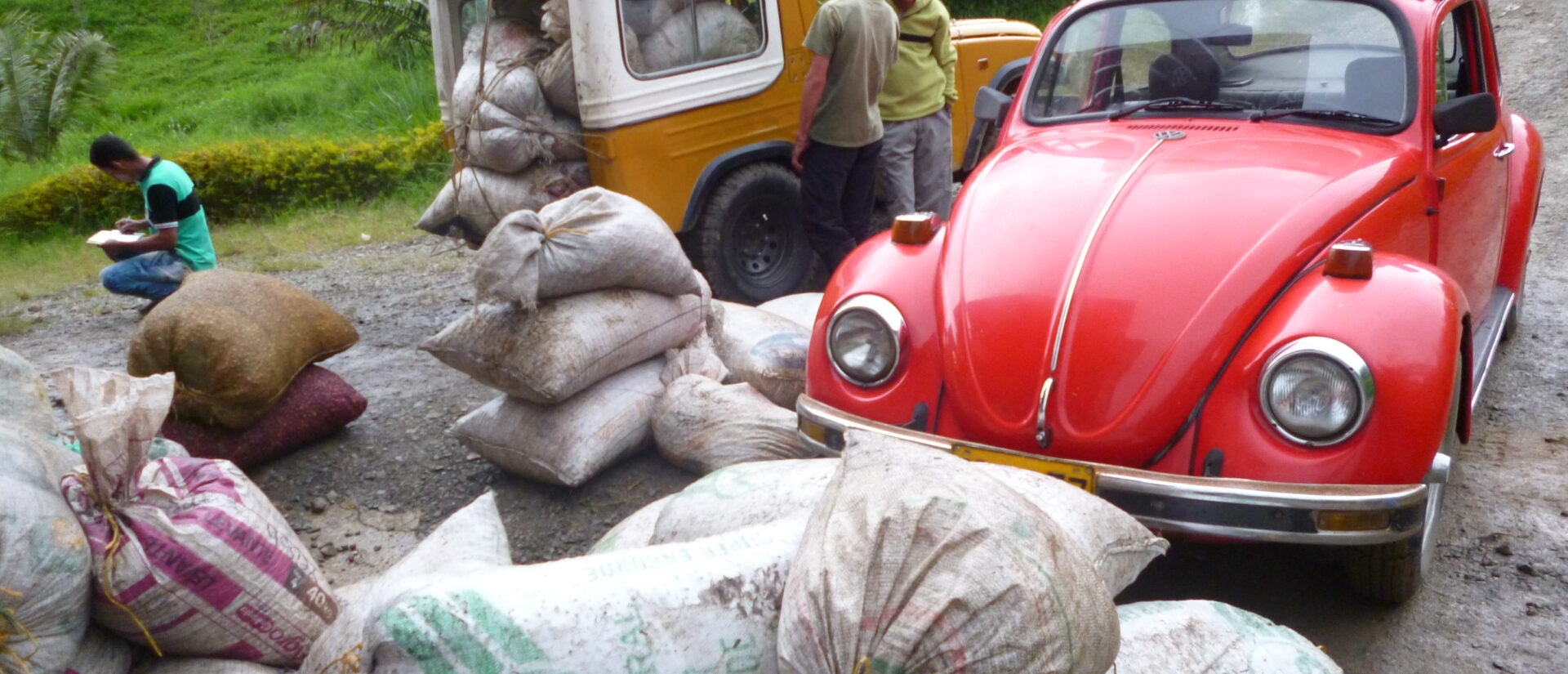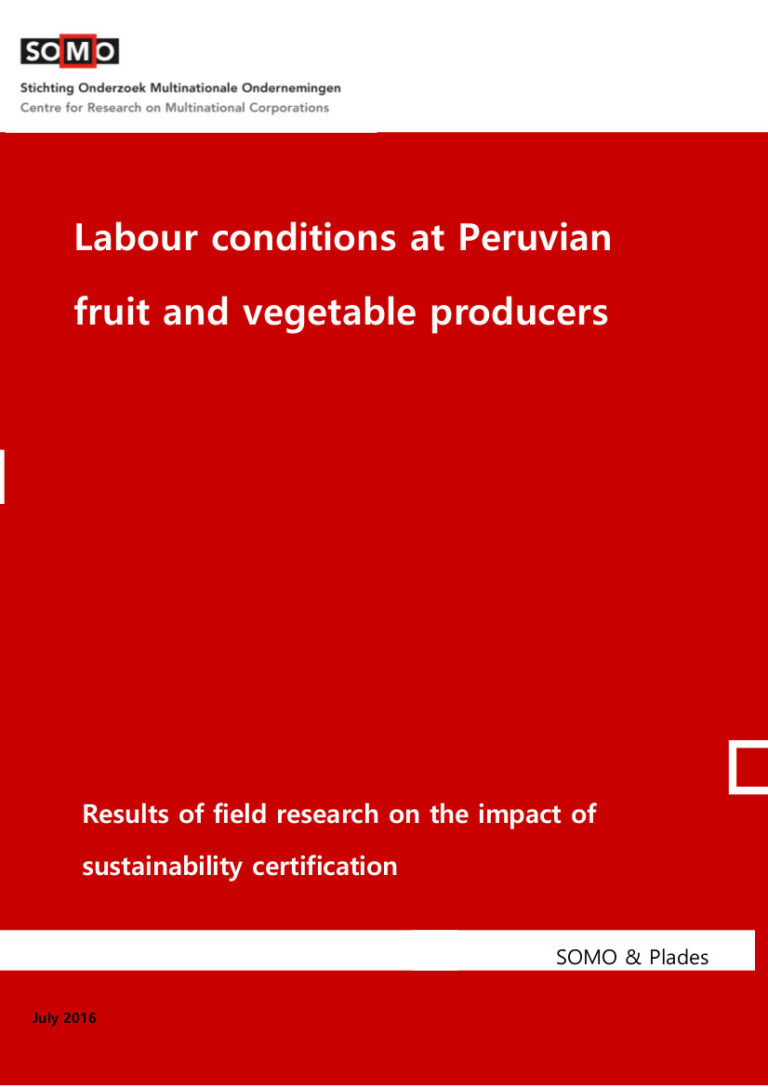
Sustainability certification initiatives need to be more effective
New SOMO research shows that working conditions on many certified farms and plantations are still problematic. Workers face an array of challenges including poor pay, unsafe and unhealthy situations, and they are prevented from standing up for their rights. Changes and improvements are urgently needed for ambitious sustainability certification initiatives to become a significant instrument in improving working conditions for farm workers across the developing world.
The study ‘Looking good on paper’ shows a pattern of recurring labour right violations across the most important sustainability certification initiatives, affecting a range of tropical commodities and exporting countries. Meanwhile, the evidence that initiatives such as Fairtrade and Rainforest Alliance actually improve conditions for farm workers remains very thin.
-
Report looking good on paper (pdf, 284.94 KB)
The research
For this research, SOMO reviewed farm-level evidence about the effectiveness of sustainability certification initiatives in ensuring and promoting the fulfilment of internationally agreed labour standards in large-scale agricultural production in low- and middle-income countries. Building on the findings, approach and methodology of SOMO’s previous study on the same topic ‘Goodness Guaranteed’ (2015), this new analysis focuses on research published between 2014 and 2017. It includes field studies conducted by SOMO and research partners in Peru and Colombia in 2015.
SOMO researcher Sanne van der Wal said: “We call on sustainability certification initiatives to do more than setting standards and auditing workplace compliance. Collaboration, coordination and/or advocacy with stakeholders, such as industry organisations, companies sourcing certified products, trade unions and NGOs is urgently needed.”
About sustainability certification
In the late 1980s, the first schemes certifying the sustainable production of agricultural commodities in developing countries emerged to promote better conditions in international trade and production. Nowadays, numerous sustainability certification initiatives – such as Rainforest Alliance, Fairtrade offer their services and approaches to the market. Sustainability certification is popular because it offers companies that produce or trade in agricultural commodities a practical and reputable way to do so more sustainably.
Do you need more information?
-

Sanne van der Wal
Senior Researcher
Related content
-
Looking good on paper Published on:
 Sanne van der WalPosted in category:Publication
Sanne van der WalPosted in category:Publication Sanne van der Wal
Sanne van der Wal -
 Sanne van der WalPosted in category:Publication
Sanne van der WalPosted in category:Publication Sanne van der Wal
Sanne van der Wal -
 Martje TheuwsPosted in category:Publication
Martje TheuwsPosted in category:Publication Martje Theuws
Martje Theuws

